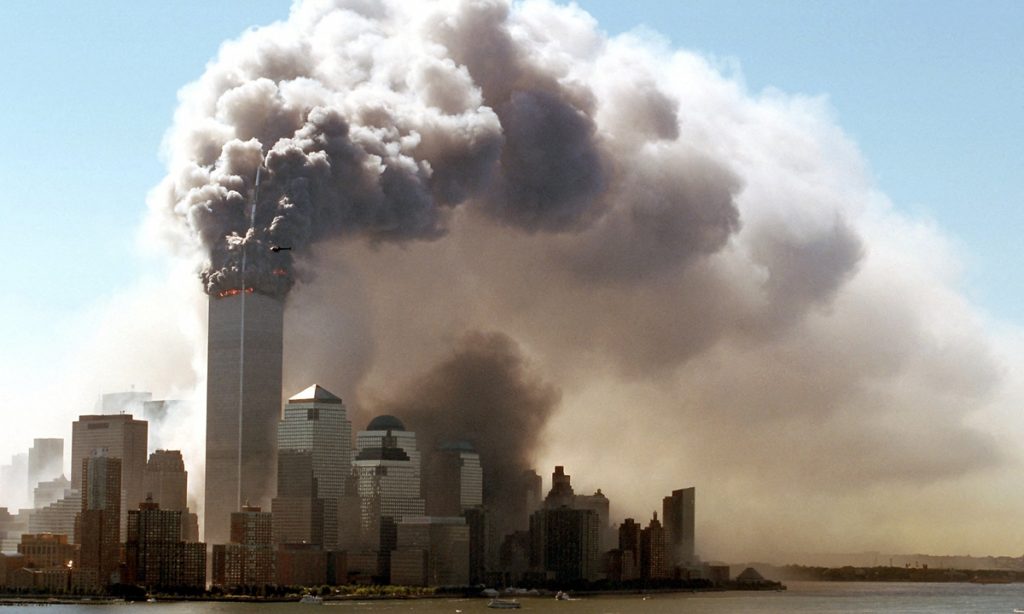9/11 reflection loses focus with US’ wrong strategy

Monday marks the 22nd anniversary of the September 11 attacks. On Monday, National Public Radio (NPR) published an article titled "For a new generation of Marines, 9/11 is history." The article mentioned, "For many Americans, 9/11 is now simply a date to mark, much like December 7 with the Pearl Harbor attacks."
Americans have not learned the lessons of the 9/11 attacks after 22 years. Instead, they shift the focus of the country's national security strategy from fighting terrorism to focusing on great power competition. They have abandoned the most effective way of combating terrorism: great power collaboration in favor of great power competition. This is unfortunate for the US.
The article also mentions that Americans are engaging in "an exercise of forgetting," quoting Carter Malkasian, who chairs the defense analysis department at the Naval Postgraduate School in Monterey, California. He says September 11 isn't spoken about much nowadays. He goes on to say that there is "a recognition among nearly everyone across ranks and civilian positions that we all need to focus on China and Russia."
The US' continuous attitude reveals that without question it's a unique nation that feeds on instability and confrontation, and its hegemonic status is difficult to demonstrate in the absence of an adversary. Li Haidong, a professor at the China Foreign Affairs University, told the Global Times, "It is obvious that the US military is making every effort to create an enemy for the American public and society. Their characteristic is that they have to create enemies if there are none." Over the past 22 years, the US has increasingly solidified this mindset, which has trapped them in a vicious cycle of making one major mistake after another. At the same time, due to the global scale of the US, its tragedy inevitably spreads worldwide. This is not only a tragedy for the US itself but also the world.
The American politicians, who are locked in this vicious cycle, continue to think in bellicose, hegemonic ways to advance their own short-term political interests. They continue to shape distorted perceptions among the American people, ignoring history and focusing only on the "future threats" they deliberately create.
For the American people who experienced the 9/11 attacks, this pain is indelible. It is important for the younger generation in America to reflect on this event and prevent similar tragedies from happening again. However, their worldview is also being shaped by certain American politicians for their own political interests. Their reflections on 9/11 are also being washed away by these "self-interests."
Diao Daming, Deputy Director of the US Research Center at Renmin University of China, told the Global Times, "The current political narrative of American politicians is very dangerous. The US has shifted the focus of the problem from terrorism to great power competition, with the aim of covering up domestic divisions." Unlike the "war on terror" that united the country, the two major parties in the US now have irreconcilable differences in social welfare, military spending, minority-related politics, and other areas. American politicians are pointing overseas, hoping to achieve their political goals by deceiving the public and avoiding addressing the real problems within the US.
However, this approach is like drinking poison to quench your thirst. The effect of American politicians hyping up the China-related issue is very limited and only exacerbates the ongoing accumulation of social woes in the US. This is extremely irresponsible for the American people. China is not a remedy for America's internal turmoil. Using China as a scapegoat whenever there is a problem not only harms the US itself but also poses a threat to the world. If the US continues to persist in this way, its self-destructive path will not be too far off. The containment strategy that the US is implementing against China today will not succeed. Its failed trade war with China is as clear as its disastrous defeat in the war in Afghanistan. The actual resistance it faces in actively building an anti-China alliance far outweighs any formal gains. The end of the war in Afghanistan may allow the US to allocate some resources toward dealing with China, but it cannot change the tide of the times.
Some commentators have analyzed how the 20 years after the 9/11 attacks turned the US into a declining great power with a tarnished reputation. Arrogantly believing that waging wars can reshape the world, the US has gradually pushed itself into a declining abyss. American politicians fail to reflect on the lessons learned and, despite leaving behind numerous "messes" internationally with their "military counterterrorism" efforts, they selfishly shift their strategic focus from "counterterrorism" to "great power competition" and aggressively suppress China and Russia, attempting to create more troubles. The US hopes to continue maintaining its hegemonic status, but the decline of American-style hegemony is an inevitable law of historical development.